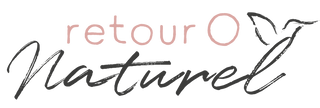Multi-purpose wipes without chemicals, effective, reusable and zero waste exist. 3 ingredients, recycling and frankly it does the job really well!
Material to make reusable multi-surface wipes
- Old rags, microfibers, old cotton sheets or other materials. You can use the fabrics of your choice, opt for a rather thin fabric.
- An airtight jar
Ingredients and manufacturing steps for reusable multi-surface wipes
- 400ml filtered or boiled water
- 400ml white vinegar (14 degrees) or flavored vinegar (recipe here )
- 10 drops of tea tree EO or other EO ex: lemon (optional)
Cut the wipes according to the size of your choice then put them in the jar. Fill the container with white vinegar. I use white vinegar at 14 degrees for better efficiency. The more acidic it is, the more effective it will be in reacting with limescale or in disinfecting. Pour the boiled water into the jar then wait for the mixture to cool before adding the essential oil. Close the jar and turn it over to soak the wipes well. Leave to macerate for a few hours before first use.
To use them, nothing could be simpler! Shake the jar then take out a wipe, wring it out and pass it over the surface to be cleaned. Once dirty do not put it back in the jar. Rinse the wipe and put it in the washing machine with the dirty laundry. Then go back to the pot!
Pregnant women, made without essential oil.
You can use fragrant vinegar. Macerate lavender or citrus peelings in vinegar for about ten days, filter then dilute in water. You can find the detailed recipe right here .
TIP so that there is no smell of humidity, let the wipes soak in the liquid. Take them out and wring them out only for use.
TIP for making great wipes: Simply fold the tissue so it fits in the jar.
Using essential oils in homemade household products
I've been using this alternative to disposable wipes for two and a half years. When I started I systematically added essential oils against microbes and bacteria. But I gradually understood that it could be done without, the same goes for the majority of household products. So, I don't use any more for this purpose. As I progressed in my transition, I understood that it was necessary to use them wisely (internal and external body care, emotions...).
The manufacture of a vial of essential oil requires an astronomical quantity of plants. From this observation, everyone is free to use it or not in the preparation of household products.
Benefits of reusable multi-surface wipes
White vinegar is a powerful cleaner that degreases, deodorizes and descales. It is a natural antiseptic.
Tea tree essential oil is disinfectant.
To your food my hummingbirds ;)
@retour.o.naturel

Bonjour,
Est ce que le produit multi usages peut s’utiliser sur le parquet vitrifié ou cela risque de ternir le sol à l’usage?
Merci beaucoup
Top cette astuce manquant un peu de place , j’ai un spray de vinaigre blanc avec lequel je nettoie tout sans exception et des lavettes que je lave 😍😍 pour moi et l’environnement ( et le porte monnaie aussi 🥰) c’est le plus simple et le meilleur
Bonjour
Vous utiliser vos lingettes sur quelle surface pour le bois vernis possible ?
Merci
Salut Sophie,
En général ça me tient un mois voir un peu plus. Pour faire du vinaigre parfumé, il suffit de faire macérer minimum 15 jours les épluchures. Tu peux ensuite les retirer. Il m’est arrivé parfois de les laisser plus d’un mois.
Salut!
Haha ton message m’a bien faire rire! C’est vrai que l’odeur HE de Tea Tree est spéciale mais elle a tellement de bienfait. Sinon tu peux opter pour HE de citron pour ses propriétés bactéricides, antiseptiques et désodorisantes;)